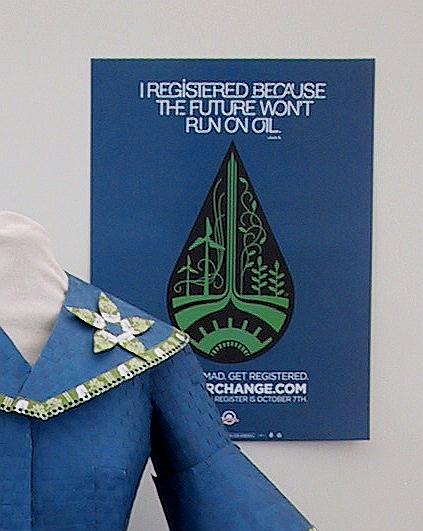Alterations: Tailored Solutions to Climate Change
Case 1
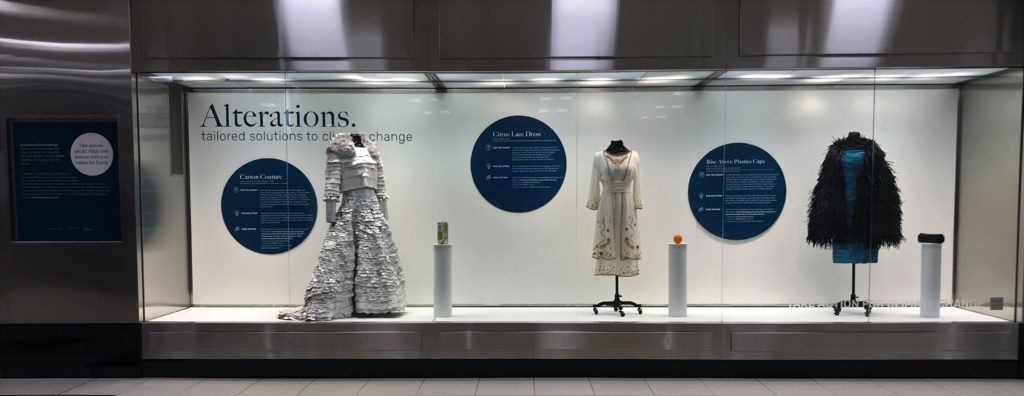
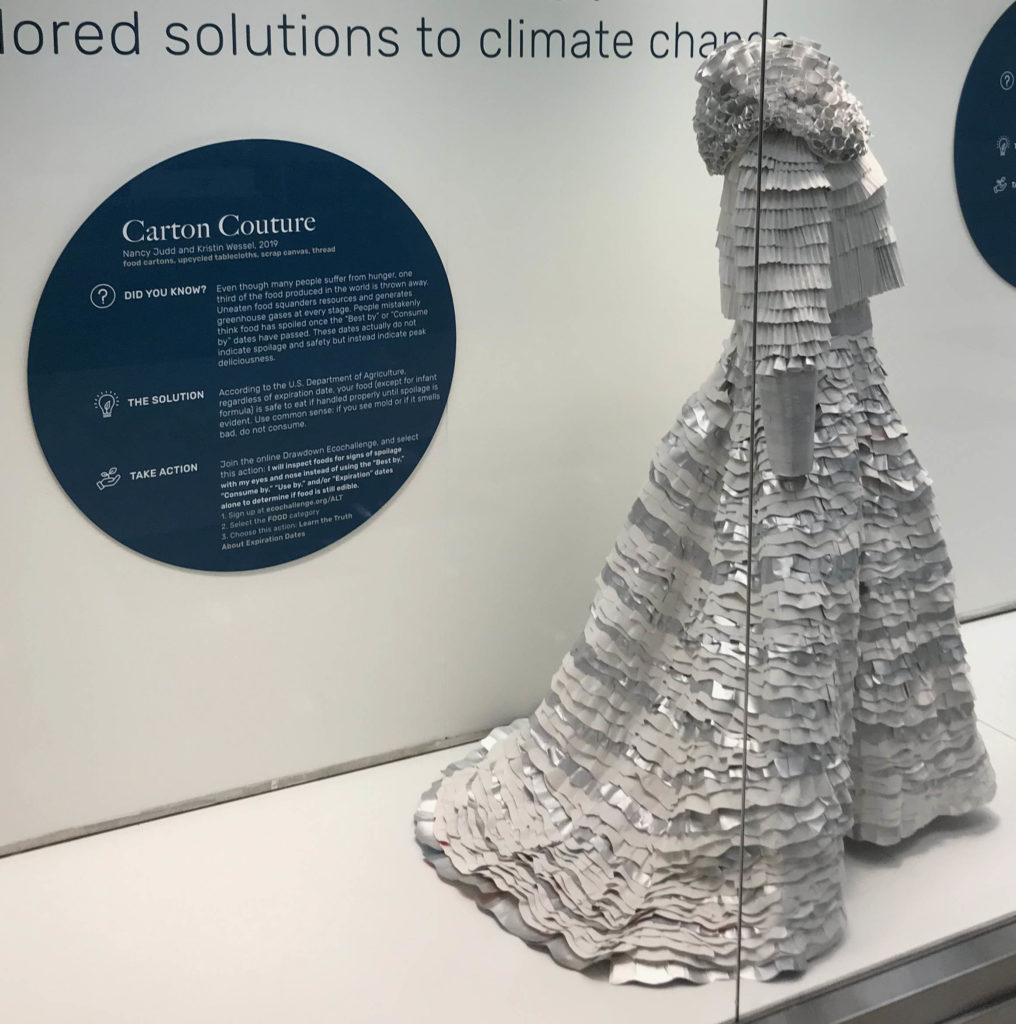 |
Carton Couture, 2019
|
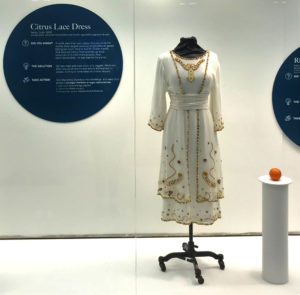 |
Citrus Lace Dress, 2020 Nancy Judd Orange peels, upcycled cheesecloth and sheets, egg whites, pigment, thread Did you know? If cattle were their own nation, they would be the world’s third-largest producer of greenhouse gases! Eating too much meat is bad for human health. And because eating meat gobbles up more resources and emits more pollution than plant-based diets, it’s also bad for the planet. The Solution! Eat less meat and more fruits and veggies. Plant-rich diets reduce emissions and tend to be healthier for people, leading to lower rates of chronic disease. Take the on-line Ecochallenge: I will enjoy one additional meatless or vegan meal every day. |
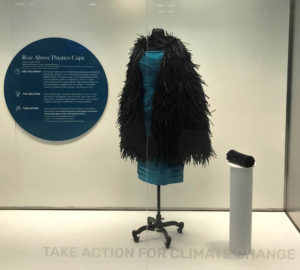 |
Case 2
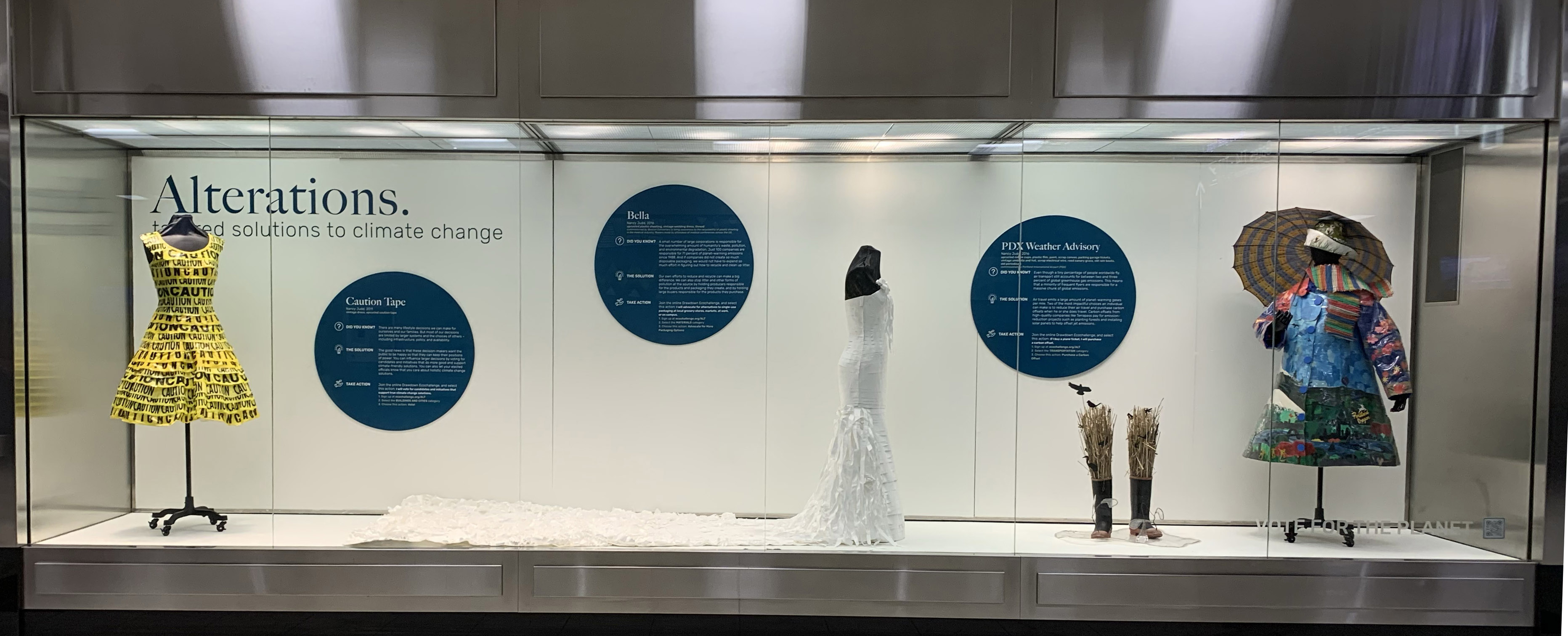
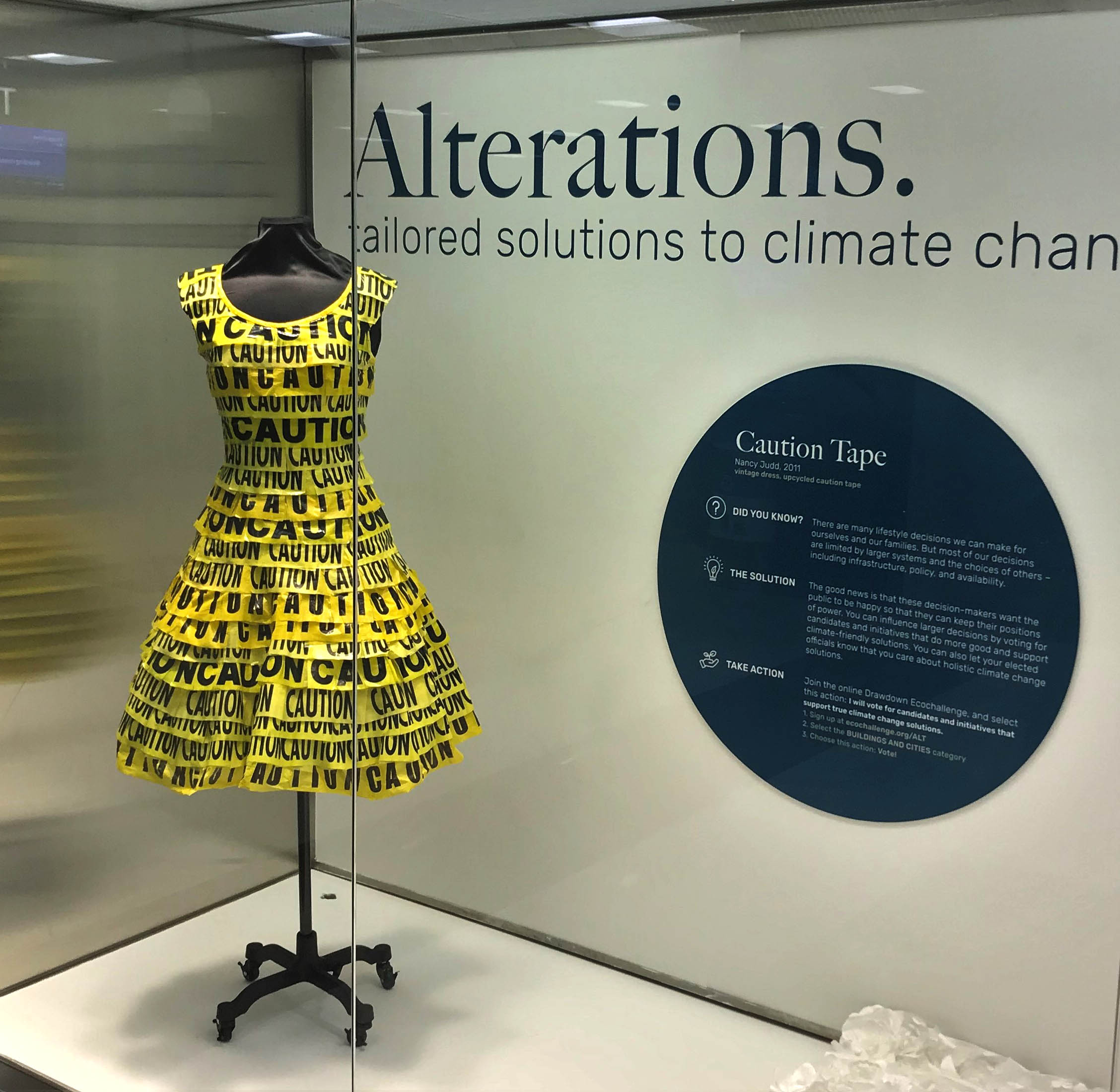 |
|
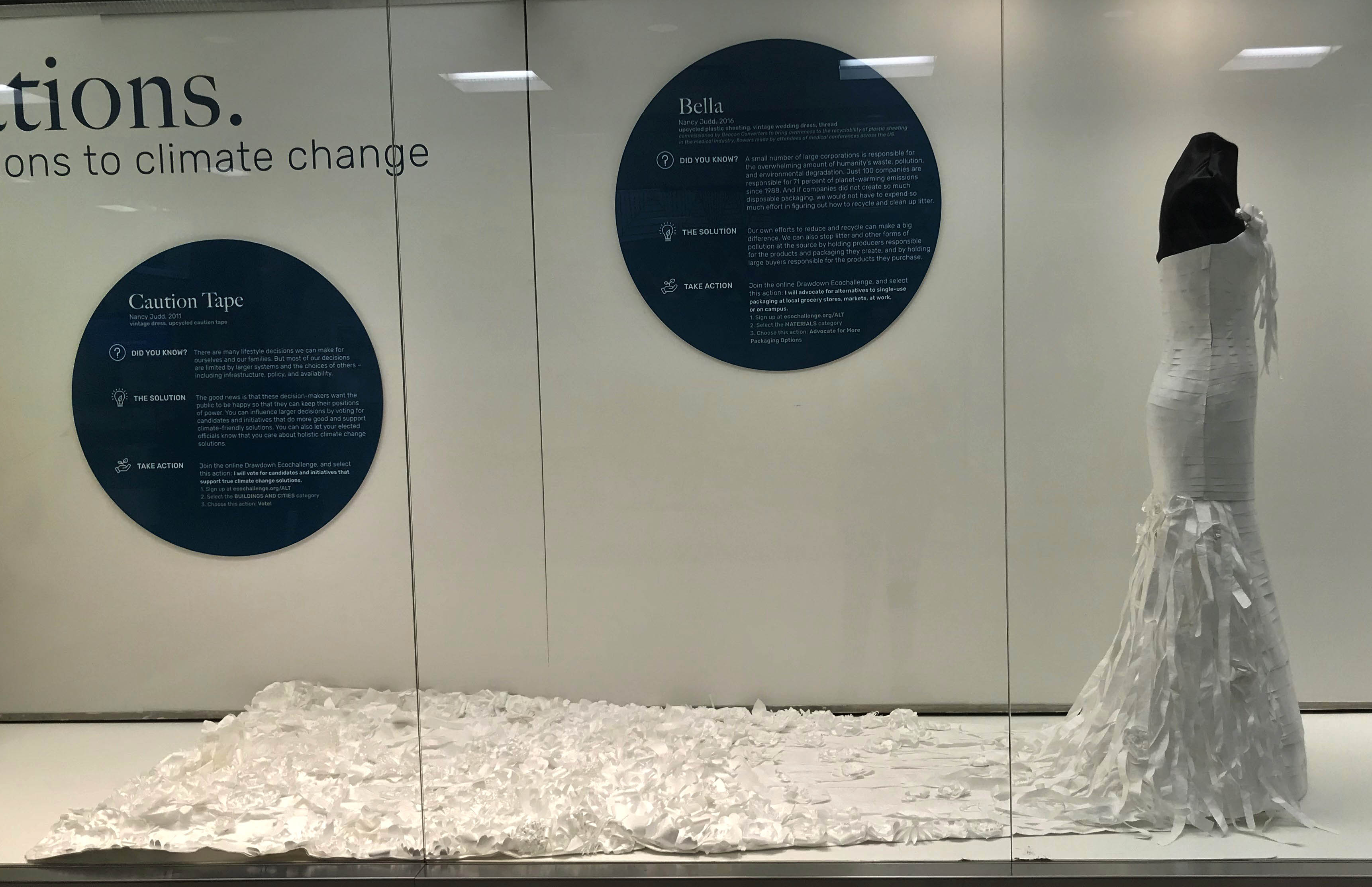 |
Bella, 2016
Upcycled plastic sheeting, vintage wedding dress, thread Nancy Judd Commissioned by Beacon Converters to bring awareness to the recyclability of plastic sheeting in the medical industry, flowers made by people at medical conferences across the US.
Did you know? A small number of large corporations is responsible for the overwhelming amount of humanity’s waste, pollution, and environmental degradation. Just 100 companies are responsible for 71% of planet-warming emissions since 1988. And if companies did not create so much disposable packaging, we would not have to expend so much effort in figuring out how to recycle or in cleaning up litter. The Solution! Our own efforts to reduce and recycle can make a big difference. But, we can stop litter and other forms of pollution at the source by holding producers responsible for the products and packaging they create, and by holding large buyers responsible for the products they purchase. Take the Ecochallenge Take the Ecochallenge at www.ecochallenge.org/ALT: I will advocate for alternatives to single-use packaging at local grocery stores, markets, at work, or on campus. |
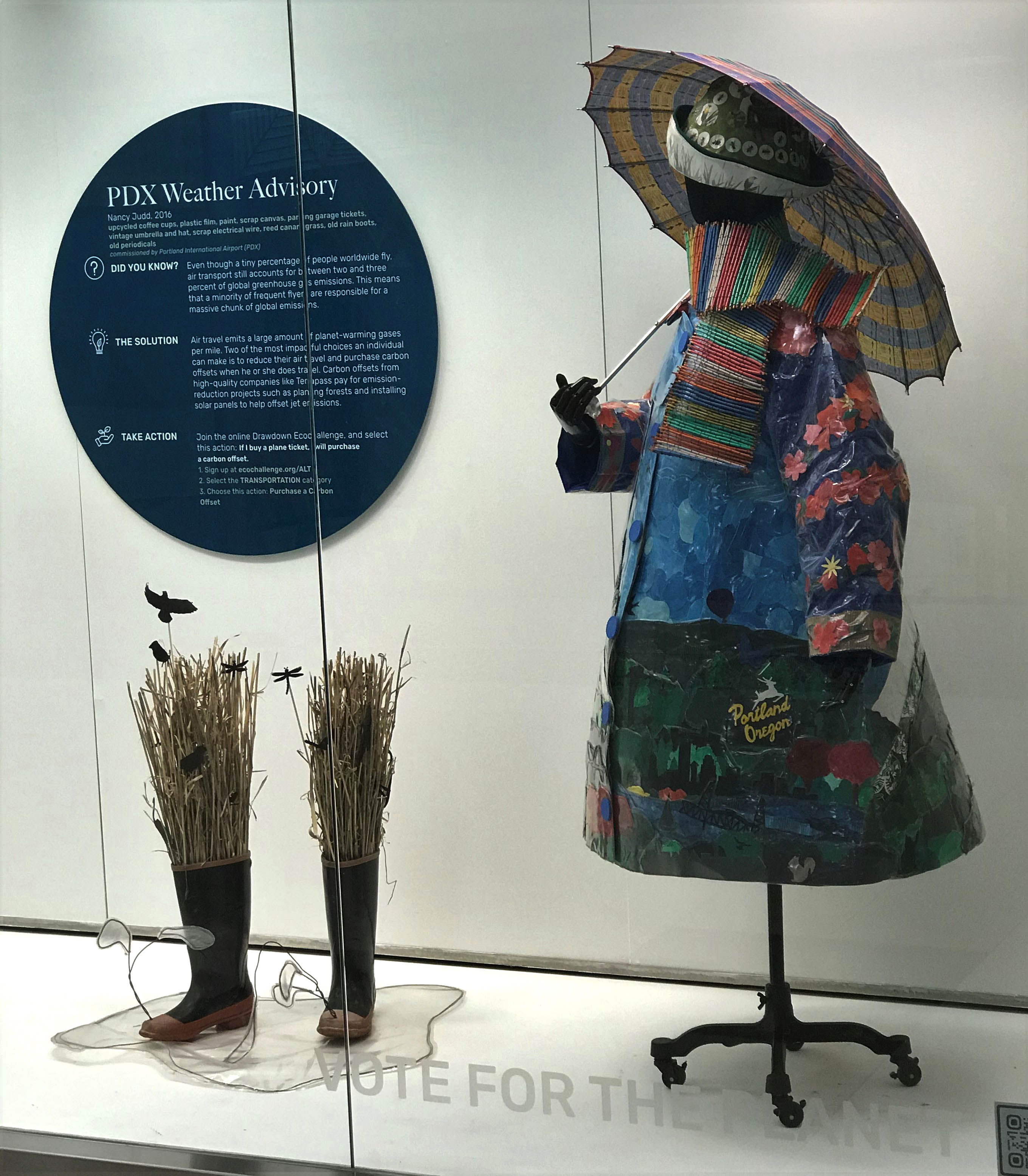 |
PDX Weather Advisory, 2016 Nancy Judd Upcycled coffee cups and transparent plastic film, paint, scrap canvas, parking garage tickets, vintage umbrella, old periodicals, vintage hat, scrap electrical wire, reed canary grass, old rain bootsCommissioned by Portland International Airport (PDX)Did you know? Even though a tiny percentage of people worldwide fly, air transport still accounts for between two and three percent of global greenhouse gas emissions. This means that a minority of frequent flyers are responsible for a massive chunk of global emissions.The Solution! Air travel emits a large amount of planet-warming gases per mile. Two of the most impactful choices an individual can make is to reduce their air travel and purchase carbon offsets when he or she does travel. Carbon offsets from high-quality companies like Terrapass pay for emission-reduction projects such as planting forests and installing solar panels to help offset jet emissions. Take the Ecochallenge at www.ecochallenge.org/ALT: If I buy a plane ticket, I will purchase a carbon offset. |
Case 3
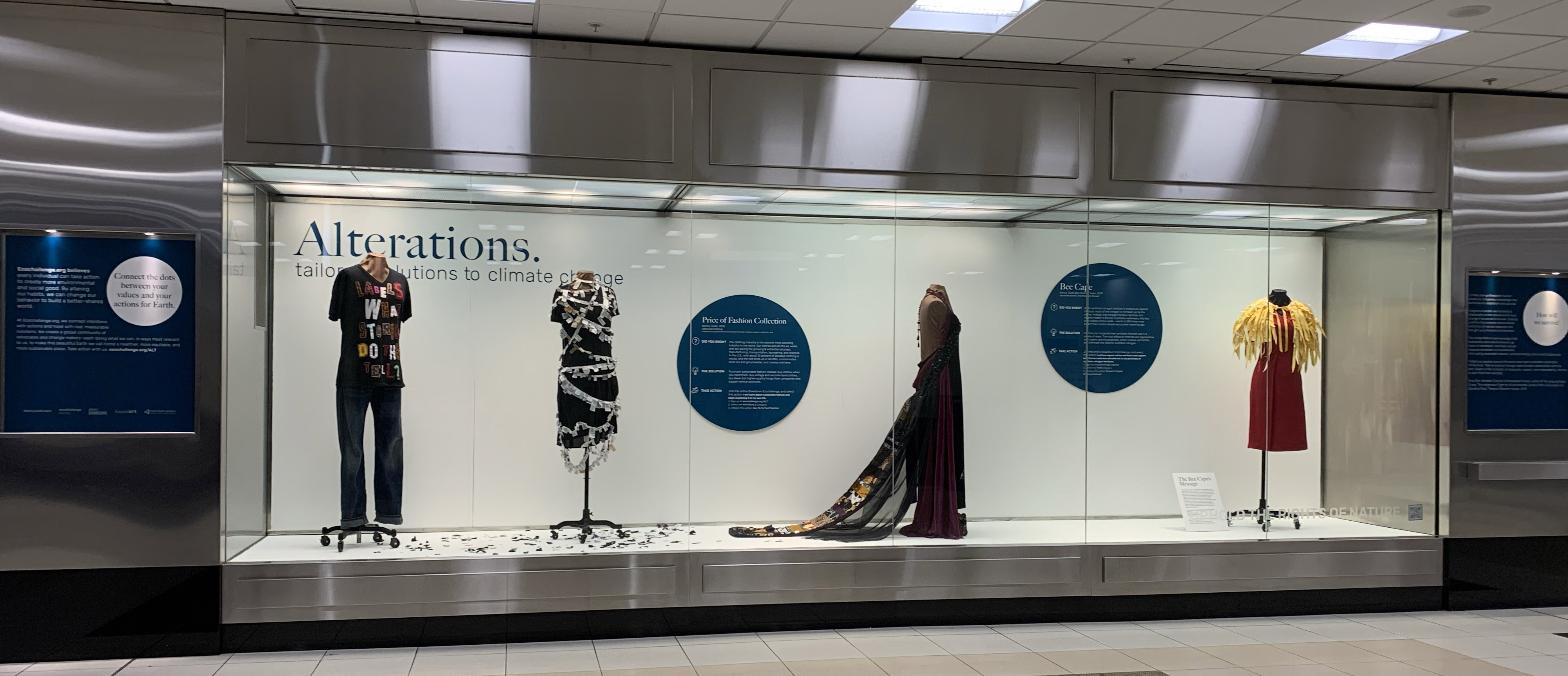
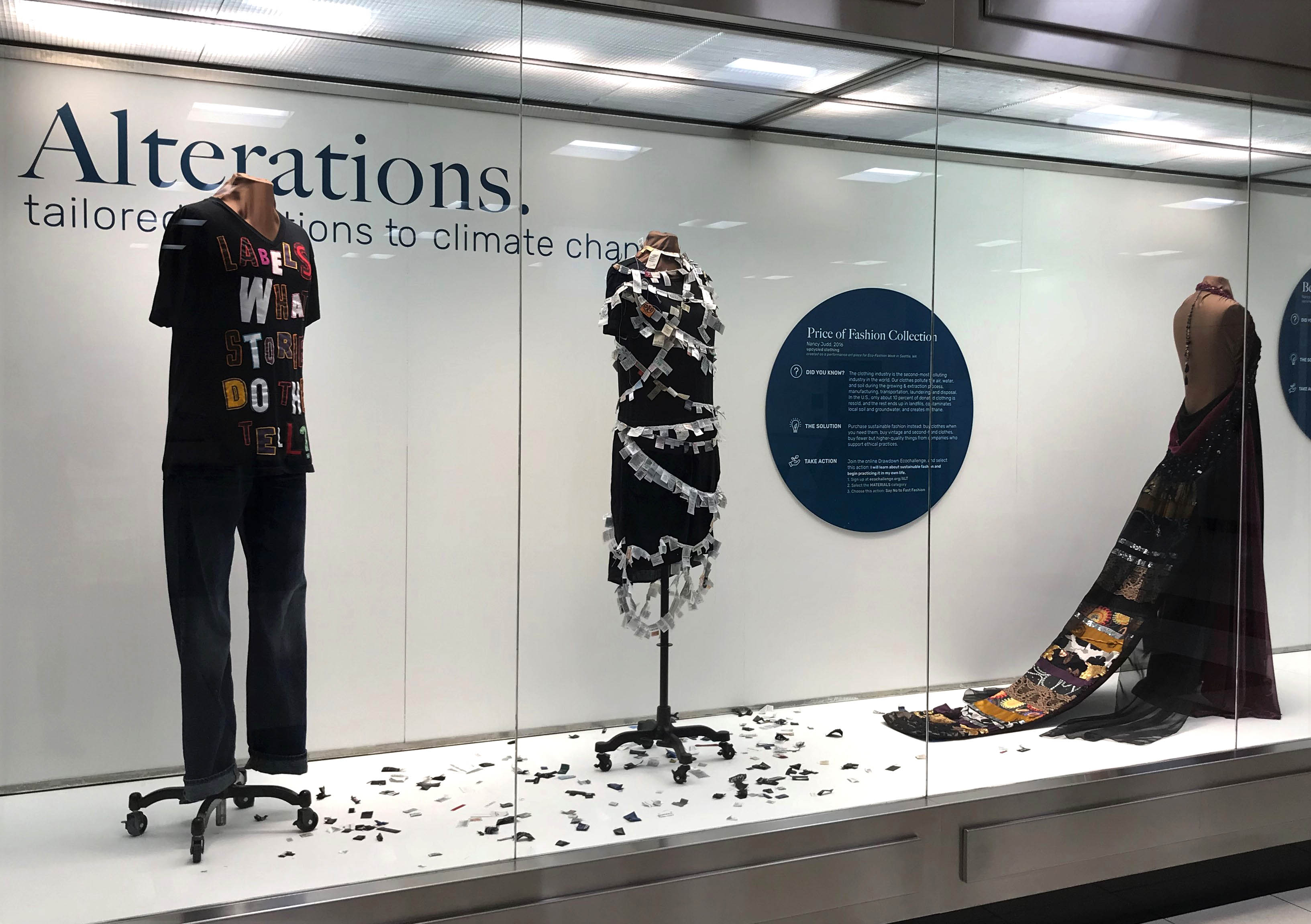 |
Price of Fashion Collection, 2016 Nancy Judd Upcycled clothing Created as a performance art piece for Eco Fashion Week in Seattle, WashingtonDid you know? The clothing industry is the second most polluting industry in the world after oil and gas. Our clothes contribute to climate change and pollute the air, water and soil during the growing and extraction process, manufacturing, transportation, laundering, and disposal. In the United States, only about 10 percent of donated clothing gets resold. The rest – up to 21 billion pounds each year in the U.S. alone – ends up in landfills where it contaminates local soil and groundwater and creates methane (a planet-warming gas) as it decomposes.The Solution! Stop supporting fast fashion and purchase sustainable fashion instead: Only buy clothes when you need them. Buy vintage and second-hand clothes. Buy fewer but higher quality things from companies you know support ethical practices. Take the Ecochallenge at www.ecochallenge.org/ALT: I will learn about sustainable fashion and begin practicing it in my own life. |
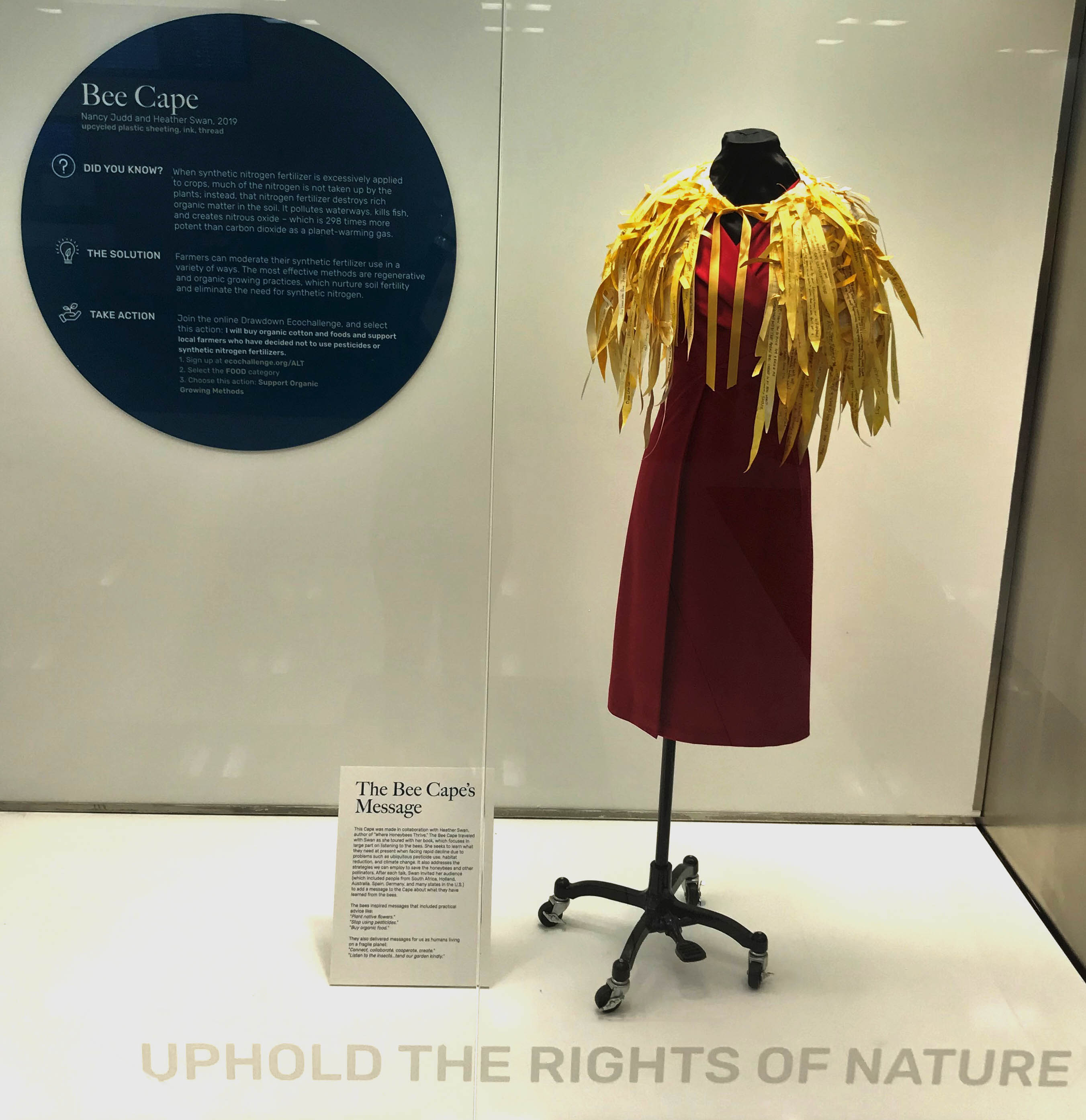 |
Bee Cape, 2019 Nancy Judd and Heather Swan Upcycled plastic sheeting, ink, threadDid you know? When synthetic nitrogen fertilizer is excessively applied to crops, much of the nitrogen is not taken up by the plants; instead, that nitrogen fertilizer destroys rich organic matter in the soil. It pollutes waterways, kills fish, and creates nitrous oxide – which is 298 times more potent than carbon dioxide as a planet-warming gas.The Solution! Farmers can moderate their synthetic fertilizer use in a variety of ways. The most effective methods are regenerative and organic growing practices, which nurture soil fertility and eliminate the need for synthetic nitrogen.Take the Ecochallenge at www.ecochallenge.org/ALT: I will buy organic cotton and foods and support local farmers who have decided not to use pesticides or synthetic nitrogen fertilizers. |
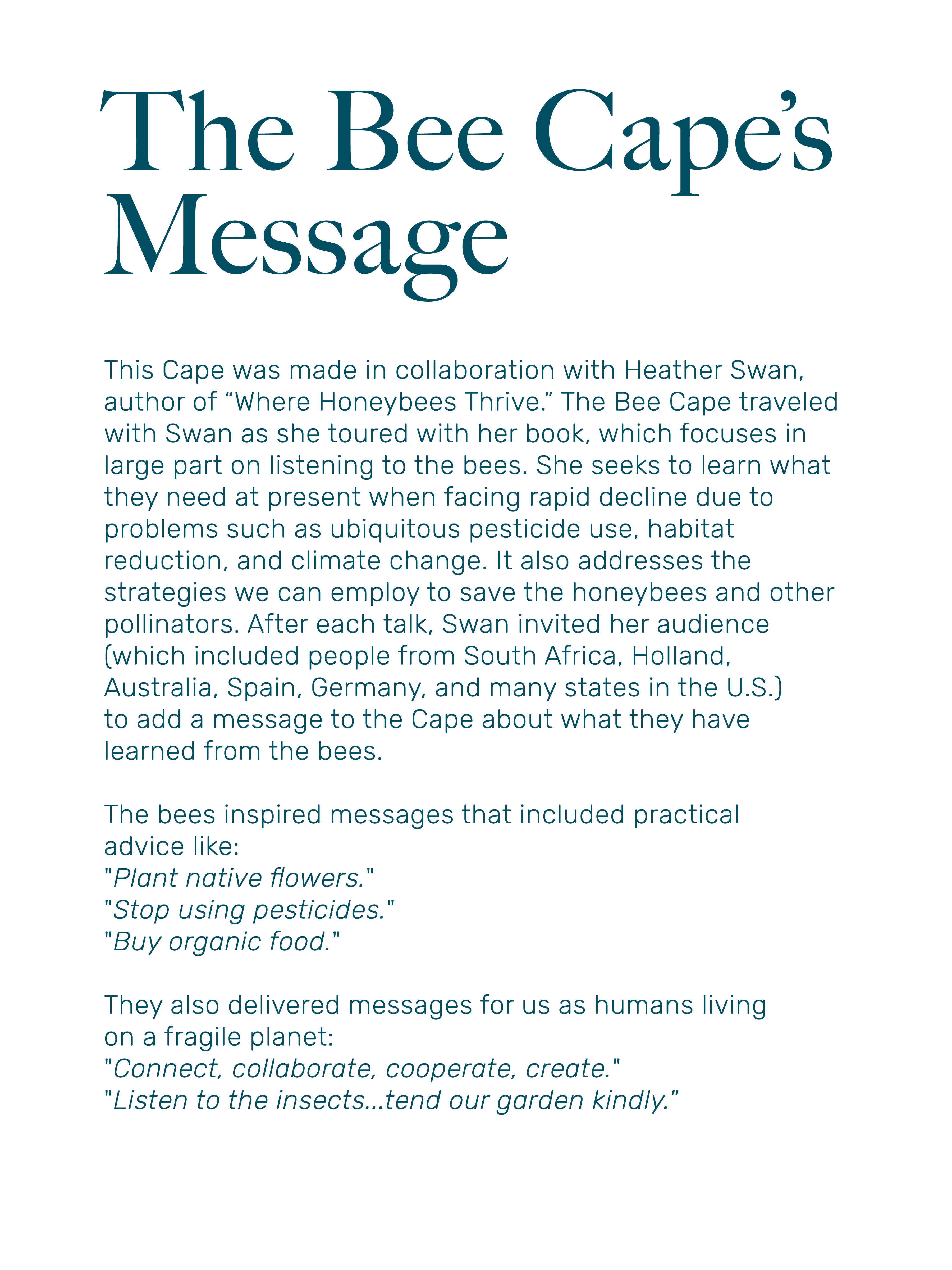 |
Case 4
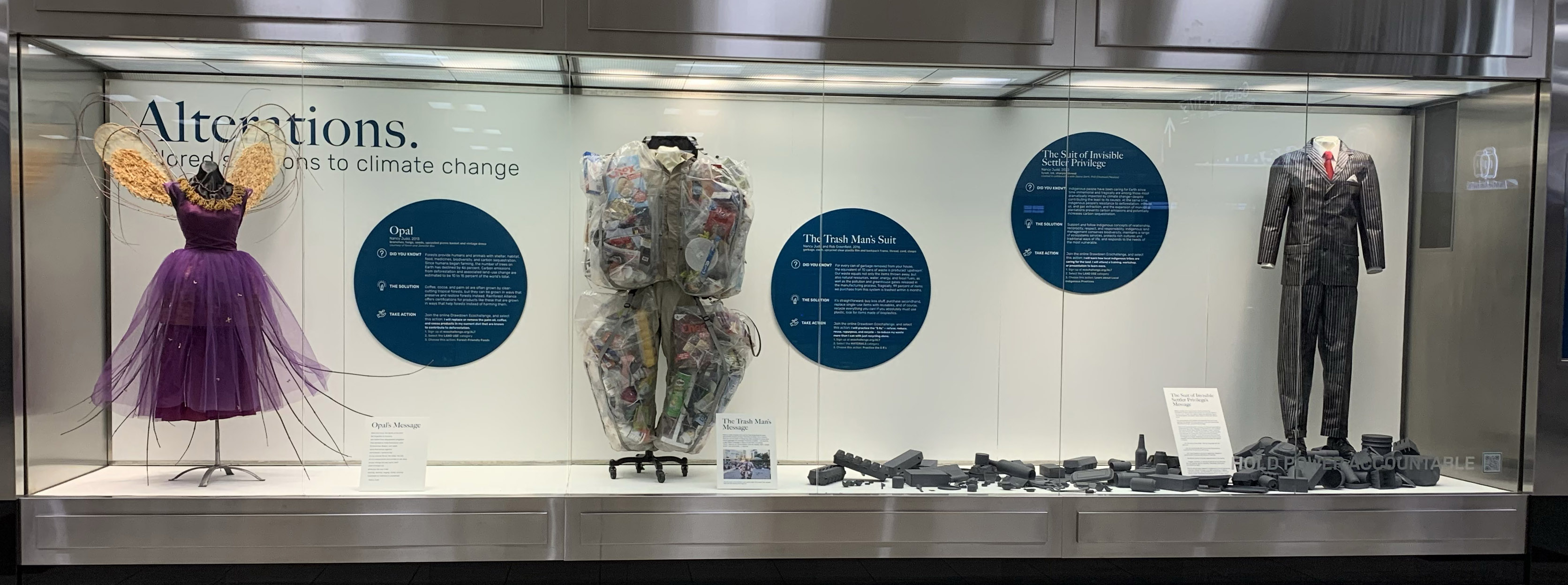
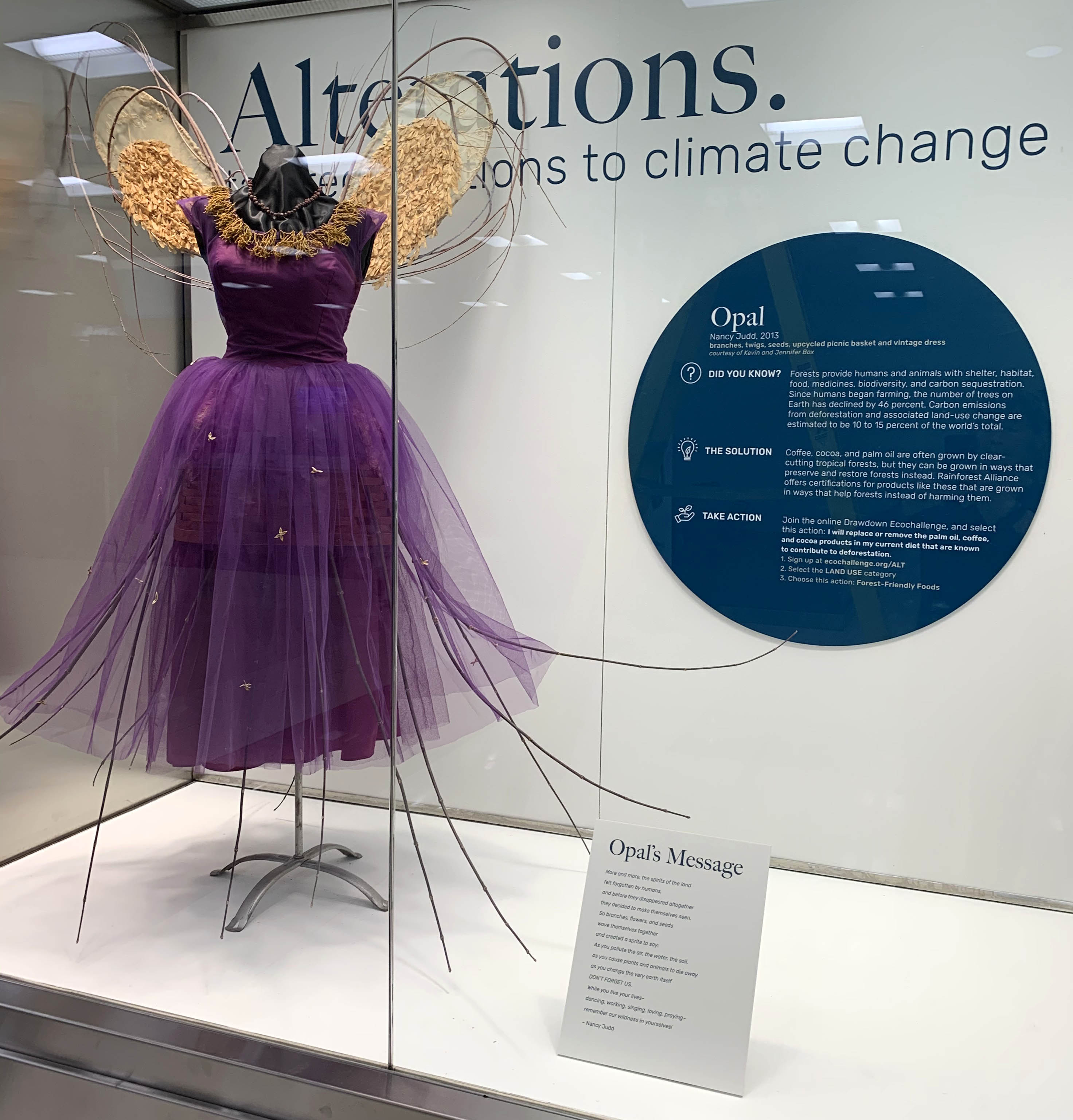 |
Opal, 2013 Nancy Judd Branches, twigs, seeds, upcycled picnic basket, vintage dressCourtesy of Kevin and Jennifer BoxDid you know? Forests provide humans and animals with shelter and habitat, food, medicines, biodiversity, and carbon sequestration. Since humans began farming, the number of trees on Earth has declined by 46 percent. Carbon emissions from deforestation and associated land-use change are estimated to be 10 to 15 percent of the world’s total.The Solution! Coffee, cocoa, and palm oil are often grown by clear-cutting tropical forests, but they can be grown in ways that preserve and restore forests instead. Rainforest Alliance offers certifications for products like these that are grown in ways that help forests instead of harming them.Take the Ecochallenge at www.ecochallenge.org/ALT: I will replace or remove the palm oil, coffee, and cocoa products in my current diet that are known to contribute to deforestation. |
 |
|
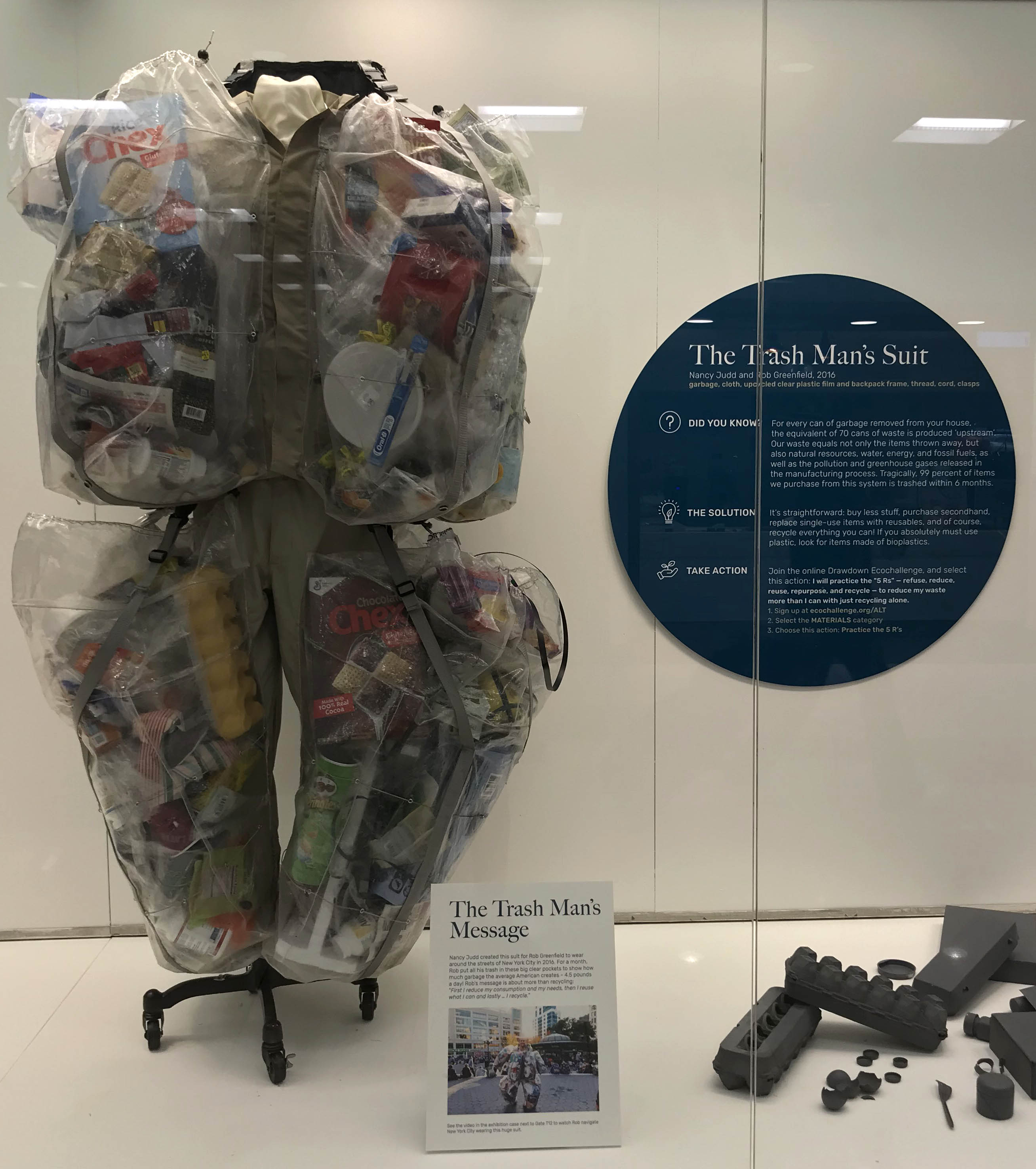 |
The Trash Man’s Suit, 2016 Nancy Judd and Rob Greenfield Garbage, cloth, upcycled clear plastic film, thread, cord, upcycled backpack frame, claspsDid you know? For every can of garbage you take out of your house, the equivalent of 70 cans of waste is produced ‘upstream’ in the manufacturing cycle. Our waste represents not only the items that are thrown away, but also the natural resources, water, energy, and fossil fuels it took to extract, transport, and process those raw materials, as well as the pollution and greenhouse gases released in that process. Tragically, 99% of the items we purchase from this system are trashed within 6 months.The Solution! It’s really easy: buy less stuff, purchase second hand, replace single-use items with reusables, and of course, recycle everything you can! If you absolutely have to use plastic for some reason, look for items made of bioplastics.Take the Ecochallenge at www.ecochallenge.org/ALT: I will Practice the “5 Rs” — refuse, reduce, reuse, repurpose, and recycle — to reduce my waste more than I can with just recycling alone. |
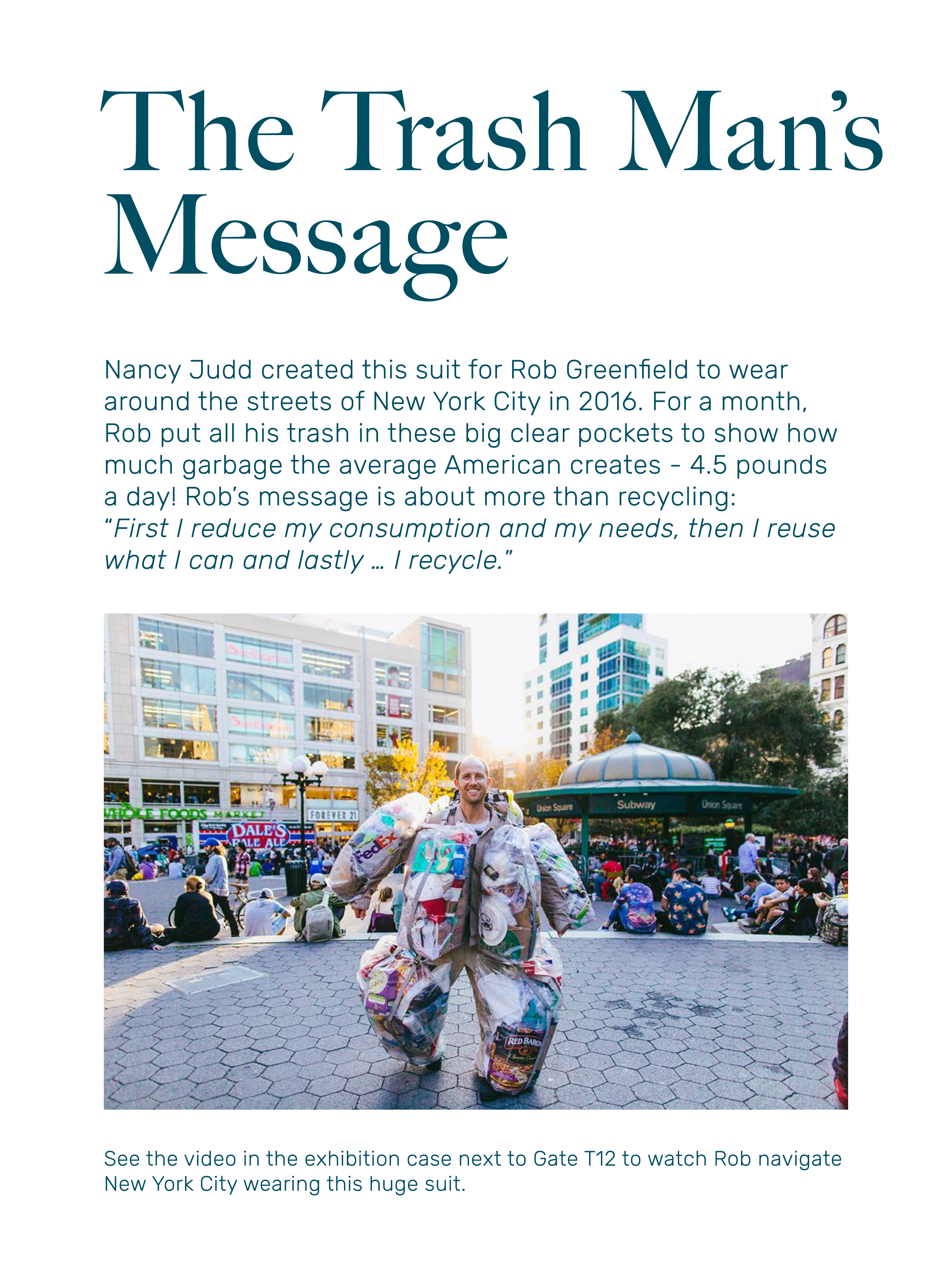 |
|
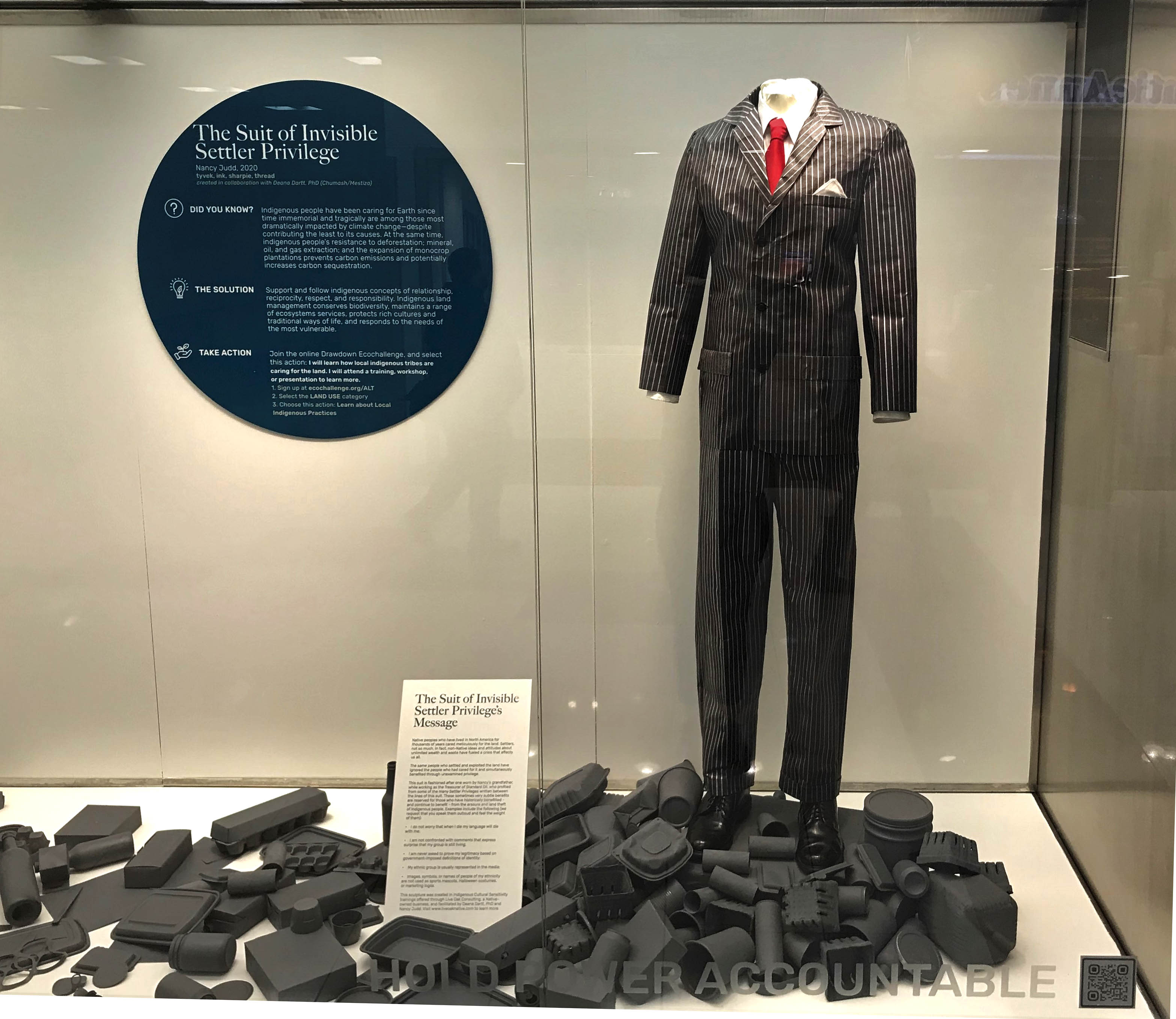 |
The Suit of Invisible Settler Privilege, 2020 Nancy Judd and Deana Dartt, PhD (Chumash/Mestiza) Tyvek, ink, sharpie, thread, trash painted grey Did you know? Indigenous peoples have been caring for Earth since time immemorial and tragically are among those most dramatically impacted by climate change—despite contributing the least to its causes. At the same time, indigenous people’s resistance to deforestation; mineral, oil, and gas extraction; and the expansion of monocrop plantations prevents carbon emissions and potentially increases carbon sequestration.The Solution! Support and follow indigenous concepts of relationship, reciprocity, respect, and responsibility. Indigenous land management conserves biodiversity, maintains a range of ecosystems services, protects rich cultures and traditional ways of life, and responds to the needs of the most vulnerable. Take the Ecochallenge at www.ecochallenge.org/ALT: I will learn how local indigenous tribes are caring for the land. I will learn who occupied (and cared for) the place where I now live and attend a training, workshop, or presentation to learn more. |
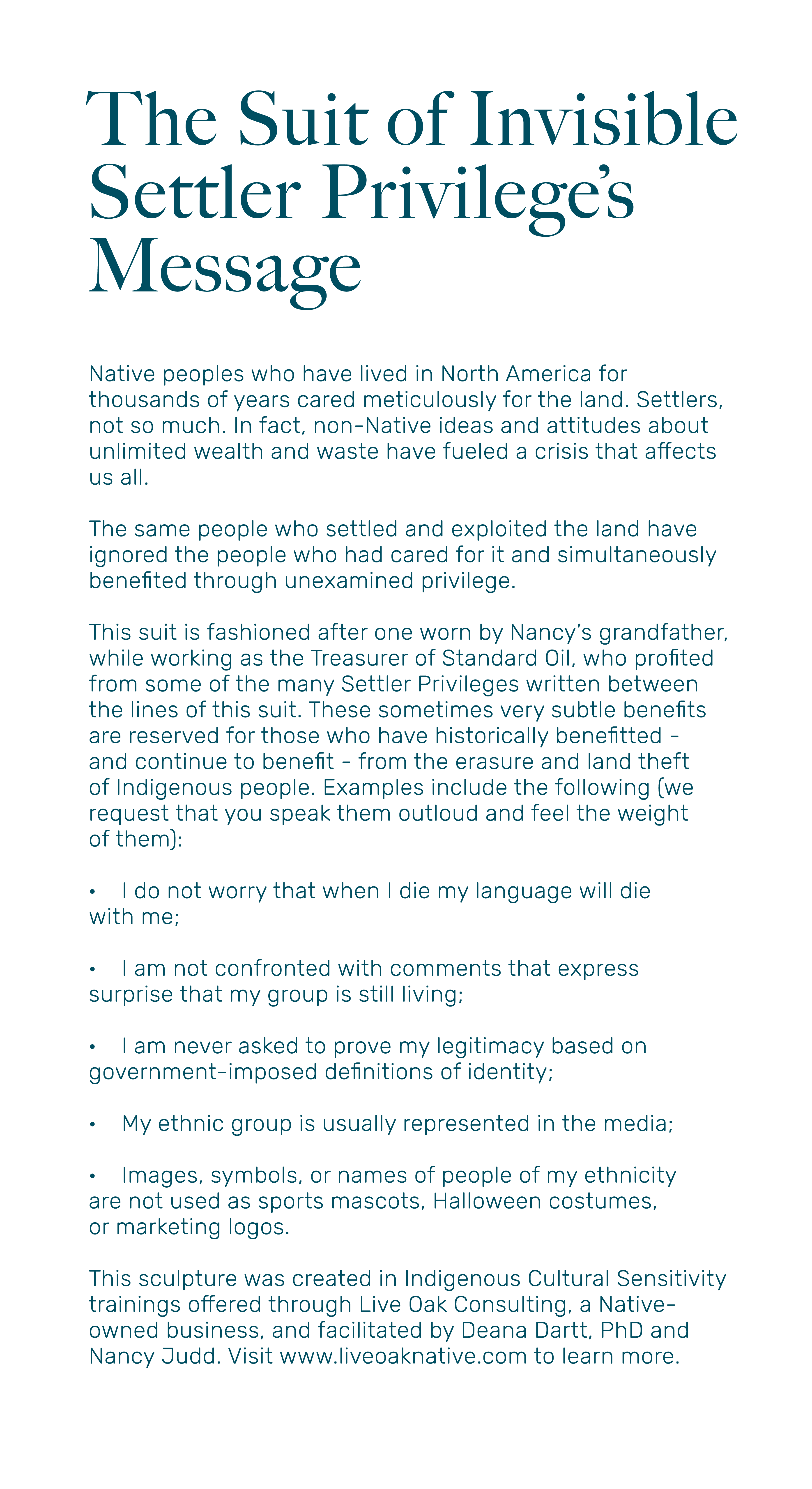 |
Case 5
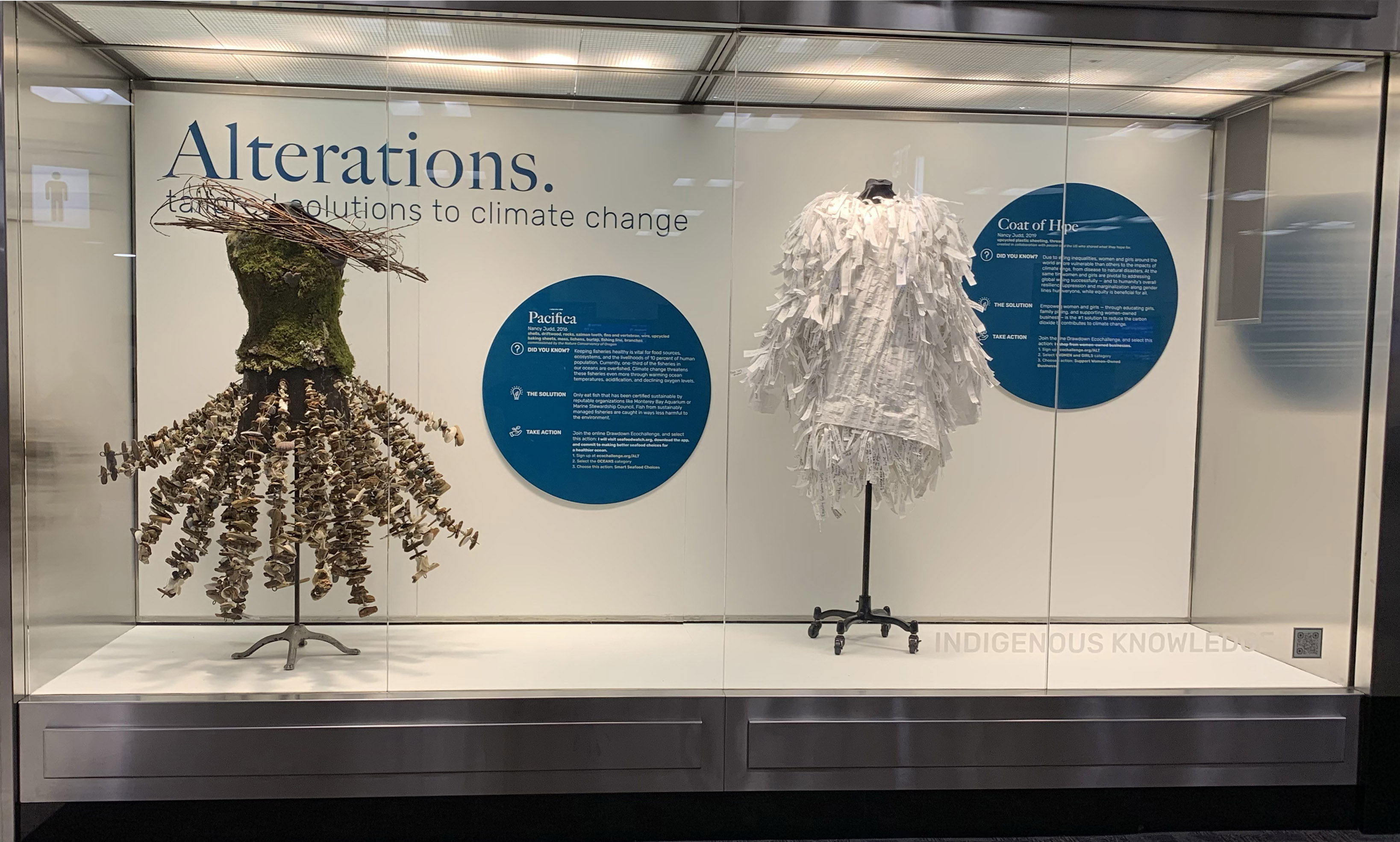
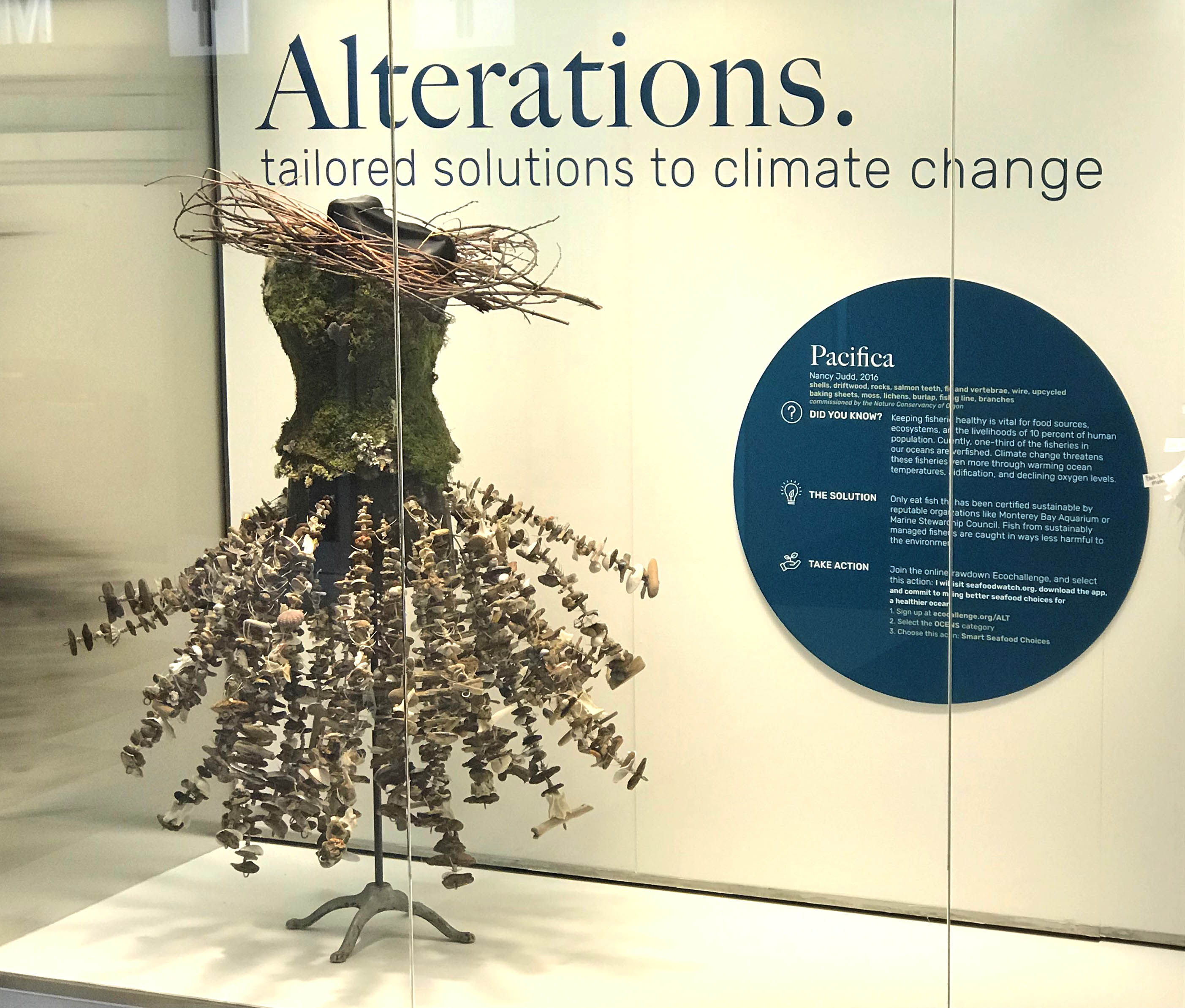 |
Pacifica, 2016 Nancy Judd Shells, driftwood, rocks, salmon teeth, fins and vertebrae, wire, upcycled baking sheets, moss, lichens, burlap, fishing line, branchesCommissioned by the Nature Conservancy of OregonDid you know? Keeping fisheries healthy is vital for food sources, ecosystems, and the livelihoods of 10 percent of the world’s human population. Currently, one-third of the fisheries in our oceans are overfished. Climate change threatens these fisheries even more through warming ocean temperatures, acidification, and declining oxygen levels.The Solution! Only eat fish that has been certified sustainable by reputable organizations like Monterey Bay Aquarium or Marine Stewardship Council. Fish from sustainably managed fisheries are caught in ways less harmful to the environment.Take the Ecochallenge at www.ecochallenge.org/ALT: I will visit seafoodwatch.org, download the app and commit to making better seafood choices for a healthier ocean. |
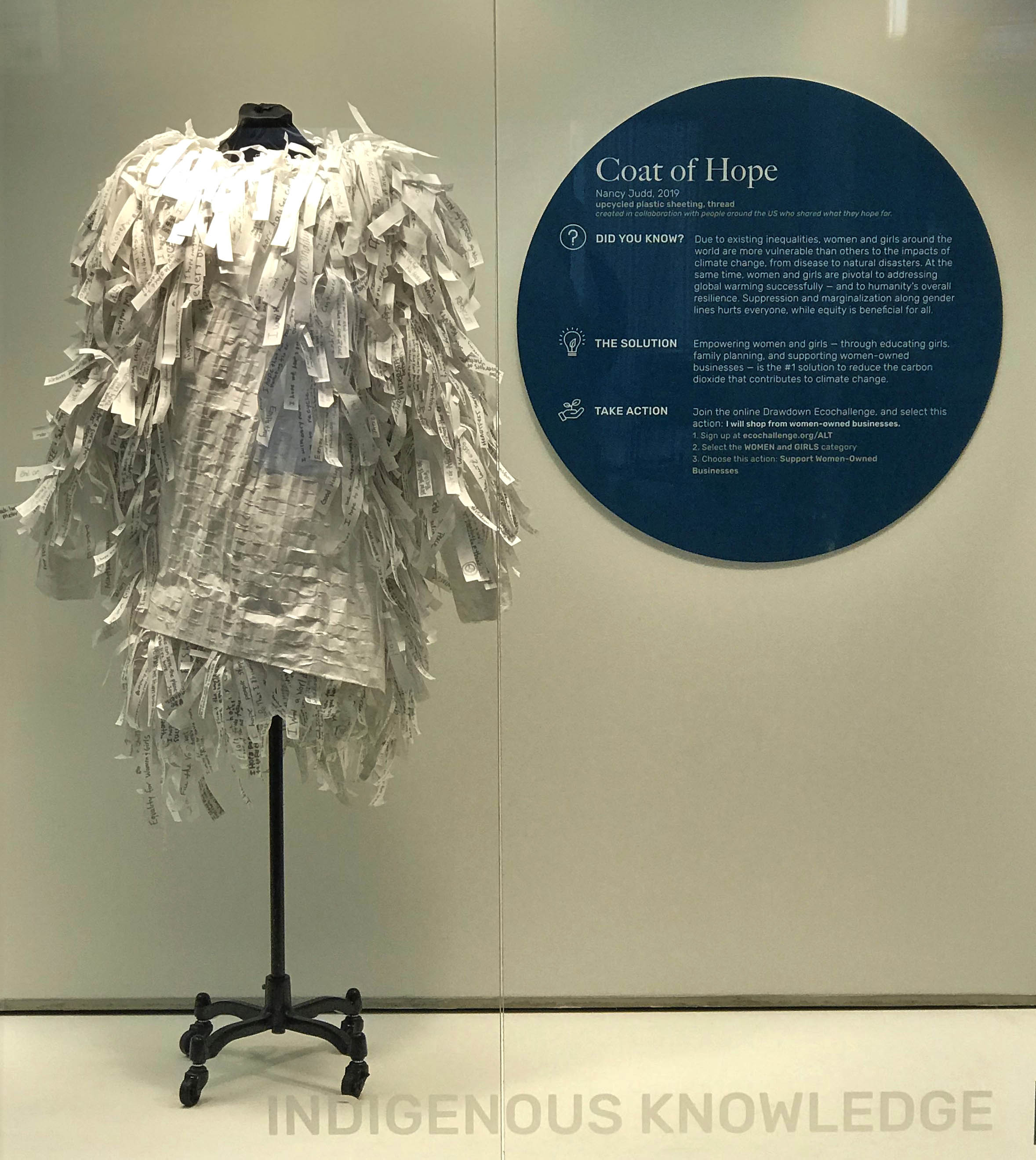 |
Coat of Hope, 2019 Nancy Judd Upcycled plastic sheeting, thread Created in collaboration with people around the United States who shared what they hope for.Did you know? Due to existing inequalities, women and girls around the world are more vulnerable than others to the effects of climate change, from disease to natural disasters. At the same time, women and girls are pivotal to addressing global warming successfully — and to humanity’s overall resilience. Suppression and marginalization along gender lines hurts everyone, while equity is beneficial for all.The Solution! Empowering women and girls — through educating girls, family planning, and supporting women-owned businesses — is the number one solution to reduce the carbon dioxide that contributes to climate change.Take the Ecochallenge at www.ecochallenge.org/ALT: I will shop from women-owned businesses. |








































